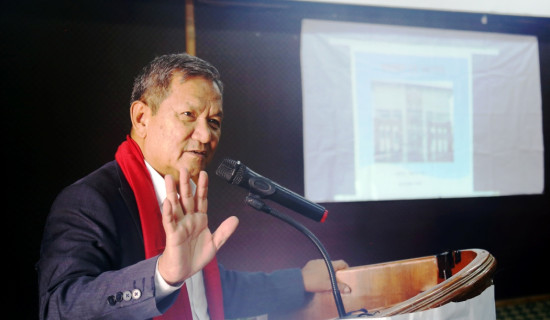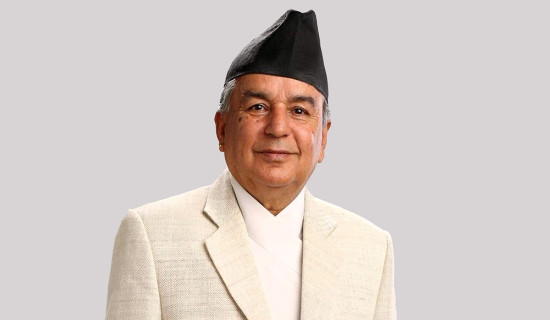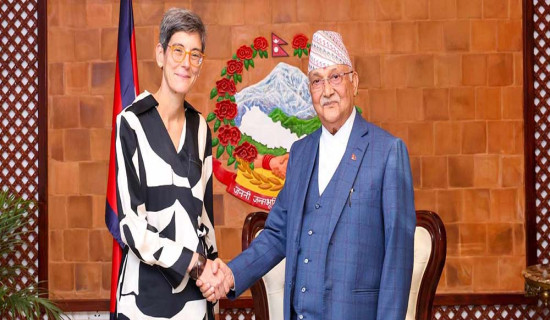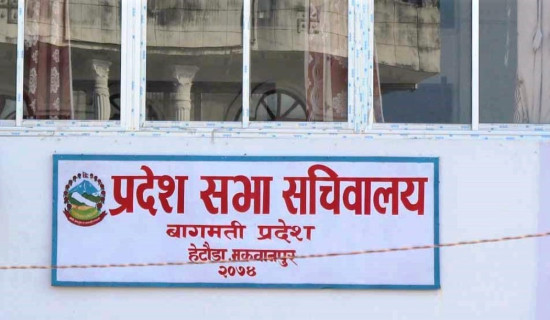- Wednesday, 31 July 2024
CPC leadership sets out economic priorities for H2 2024
By Li Xuanmin and Ma Tong, July 30: The Communist Party of China (CPC) leadership held a meeting on Tuesday to analyze the current economic situation and set out priorities for the second half of this year.
The tone-setting meeting, taking place on the heels of the third plenary session of the 20th CPC Central Committee in mid-July, carries double ramifications, as it will implement sweeping reform measures outlined by the third plenary session, while also charting a clear economic development path for the second half of 2024 amid rising pressures, observers said.
Xi Jinping, general secretary of the CPC Central Committee, presided over the meeting of the committee's Political Bureau.
The remarks are very "positive and encouraging," as they mirror the CPC leadership's firm resolution to pursue a high-quality development path and sufficient macroeconomic policy maneuvers to enable the country to overcome potential economic headwinds, Chinese and foreign scholars said.
The CPC Central Committee has held a symposium with non-CPC personages to seek opinions and suggestions on the country's current economic situation and economic work for the second half of the year, the Xinhua News Agency reported. Xi presided over the symposium and delivered an important speech on Friday.
The policy focuses laid out by the recent gatherings have rallied broad confidence on the growth prospects for the world's second-largest economy, with some foreign economists lauding that the measures will ensure the continued success of China's economic miracle in the years to come and offer a sense of continuity and certainty to a world that is growing more complex and volatile.
Scholars noted that China's economic plans could encourage other Global South countries to follow an independent development path, which in many ways could facilitate the developing countries to "leapfrog to more advanced levels."
Tone-setting meeting
According to the meeting, the tasks of reform, development and stability in the second half of the year are very important, and it is necessary to fully implement the spirit of the 20th National Congress of the CPC and the spirit of the second and third plenums.
It acknowledged the downsides of the economy, including more adverse impacts from changes in the external environment, and that effective domestic demand remains insufficient. There are still risks and potential dangers in major sectors, as well as challenges resulting from the replacement of traditional growth drivers with new ones.
However, it noted that "those are all issues in the course of development and transformation." The meeting called for efforts to raise the awareness of risks, to be prepared to deal with worst-case scenarios, and maintain strategic resolve and confidence in the country's development.
The 20th Central Committee of the CPC adopted a resolution on further deepening reform comprehensively to advance Chinese modernization at its third plenary session. The resolution, with economic structural reform as the spearhead, includes more than 300 important reform measures, all of which involve reforms across systems, mechanisms and institutions.
Hu Qimu, deputy secretary-general of the Digital-Real Economies Integration Forum 50, told the Global Times on Tuesday that the key meeting "organically" integrates the implementation of medium- and long-term goals with this year's economic development targets.
"It is a continuance of the spirit of the 'third plenum,' which lays out reform objectives to be completed by 2029. Meanwhile, the meeting breaks down long-term goals into pragmatic, phased and targeted policy priorities that could be carried out this year. Those measures could then be assigned to individual departments for further execution," Li Chang'an, a professor at the Academy of China Open Economy Studies of the University of International Business and Economics, told the Global Times on Tuesday.
In line with the tradition, this key meeting is usually held at midyear, when the CPC leadership will update its assessment of economic conditions and fine-tune economic development plans to guarantee that the objectives listed in the annual Government Work Report will be delivered on time.
Analysts stressed that the convenings of the series of tone-setting meetings, which lay out both short-term and long-term policy frameworks, play a pivotal role in stabilizing social expectations and bolstering confidence in China's growth outlook at home and abroad.
China's GDP expanded 5 percent year-on-year in the first half of 2024, meeting the annual growth target of around 5 percent.
However, analysts pointed out that growth could be contending with more headwinds in the second half, taking account of uncertainties posed by the US presidential election, certain Western countries' "decoupling" push, rising geopolitical tensions and a grimmer international situation.
"This means Chinese authorities need to pour more efforts into navigating these uncharted waters. The multiple signals sent out by the recent meetings indicate that the CPC leadership has clearly demonstrated its firm commitment to advancing reforms and policymaking capacities to promote high-quality growth," Tian Yun, a veteran economist based in Beijing, told the Global Times on Tuesday.
Helga Zepp-LaRouche, founder of Germany-based political and economic think tank the Schiller Institute, told the Global Times that the economic development blueprint put forward by the CPC leadership has laid the foundation for China's increased productivity and technological breakthroughs. She voiced strong optimism that the world's second-largest economy will sustain its recovery momentum this year, channeling a sense of continuity and certainty to the Global South.
Policy priorities
Investors have been keenly gauging how the epoch-making meeting will provide policy clues for the second half of 2024. According to them, the wording of the meeting sends a very "positive signal" that the country has an abundant policy toolkit to sustain a recovery trajectory that will hit the annual GDP target.
The meeting stressed that macroeconomic policies should remain forceful, while "being implemented more effectively." It also highlighted the necessity to strengthen counter-cyclical adjustments, implement proactive fiscal policies and prudent monetary policies effectively, accelerate the comprehensive implementation of existing policy measures, and promptly prepare and introduce a series of incremental policy measures as needed.
A number of major Chinese banks have already cut deposit interest rates since last week, the first of its kind this year that is expected to inject more liquidity into the market.
Tian said that the strength of fiscal and monetary policy support will step up in the second half, and the likelihood of a reduction in the required reserve ratio is "quite high," which will be beneficial to releasing more funds to support the real economy.
In May, China started issuing the first batch of 1 trillion yuan ($140 billion) in ultra-long-term treasury bonds. Six batches of bond issuances were completed in the first half, according to Chinese analysts' calculation. Tian suggested that finance authorities accelerate the issuances in the second half, further buttressing the momentum of economic recovery.
Another important takeaway from the meeting centered on shoring up the potential of domestic demand, as recovery on the demand side remains lopsided and Chinese consumers' willingness to spend is still flat.
The meeting emphasized that China should expand domestic demand with a focus on boosting consumption. To expand domestic demand with a focus on boosting consumption, economic policies should shift more toward benefiting people's livelihoods and promoting consumption.
"As the external situation becomes more volatile, the role of domestic consumption will be more prominent this year. It will serve as a stabilizer to cushion against global fluctuations," Li said.
Zepp-LaRouche said that she was impressed by the innovation-driven strategy China put forward through the conferences, which puts the development and expansion of emerging industries and future industries at the core. She suggested all countries across the Global South apply the principle of continued innovation in the same vein as China, so they "don't have to repeat a prolonged process of industrialization."



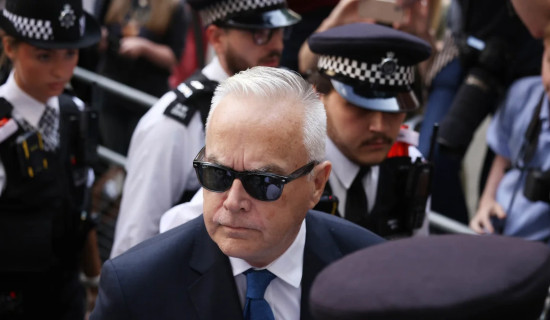
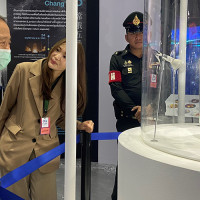

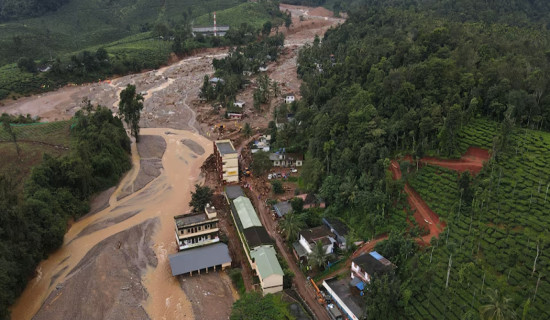

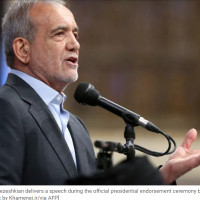
-original-thumb.jpg)

